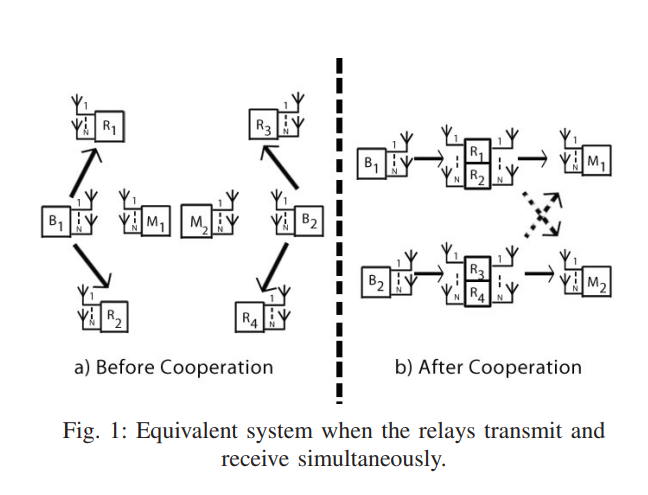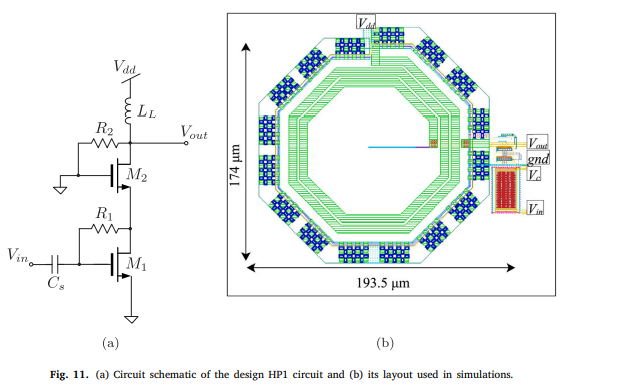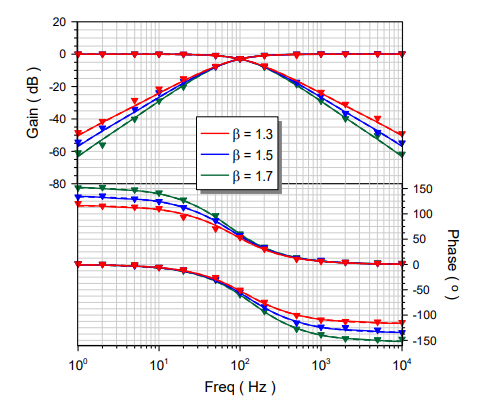
Alternate relaying and the degrees of freedom of one-way cellular relay networks
In this paper, a cellular relaying network consisting of two source-destination pairs, and four decode-and-forward relays operating in half-duplex mode is considered. Each source is assisted by two relays and all nodes are equipped with N antennas. In order to compensate for the loss of capacity by a factor of half due to the half-duplex mode, an alternate transmission protocol among the two relays is proposed. An outer bound on the degrees of freedom (DoF) of this system is developed. A constructive proof of achievability based on two different schemes is provided. Aligning the inter-relay interference due to alternate transmission and the interference received at the destination nodes is utilized to achieve the maximum DoF and recover the pre-log factor loss. For the K-user case, it is shown that the resulting system of interference alignment equations is proper when the number of streams transmitted by each source is less than or equal to 2(K3N;1). Numerical simulations show that for proper systems these DoF are achievable. © 2013 IEEE.



